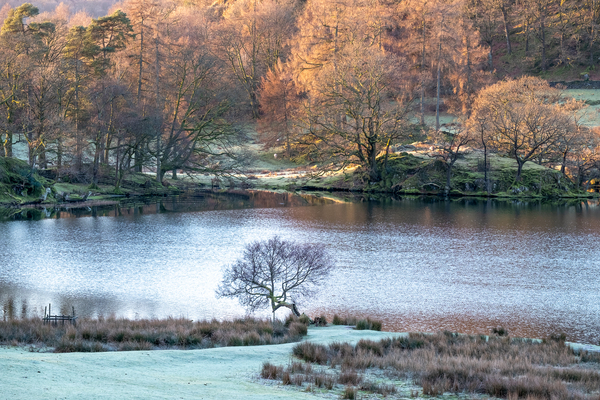According to the Mental Health Foundation, “Nature is our great untapped resource for a mentally healthy future”. Although some may find this claim surprising, I first discovered the calming effects of nature when still at school. I had been feeling very anxious about my possible performance in a recent exam and, as an attempt at distraction, I went for a walk along the river Wharfe near where we then lived in Yorkshire. This “distraction” worked better than I could have expected, and has led to a life-long management strategy for dealing with life’s stresses. The fact that I can recall this event at all (almost half a century later) no doubt supports the strength of the therapeutic effect that I experienced that day. Furthermore, the memories of the fresh and varied spring greens in the warm sunlight (together with a profusion of orange tip butterflies!) are still unusually vivid to this day. The experience certainly facilitated putting my concerns in a new and healthier perspective. Since then, on innumerable occasions I have found solace in nature from whatever anxiety then afflicting me.
As an extension of this idea, taking photographs in nature sharpens one’s capacity for detecting the often subtle beauty around us. The discipline it imposes forces a deeper immersion in the landscape and slows down one’s pace further. One is progressively submerged in the subject matter around and simultaneously distanced from more worldly concerns. The images that result may range from the “merely” documentary to, at their very best, something aspiring to visual poetry. Notwithstanding the perceived quality of the results, the process of making such photographs is, I find, invariably profoundly beneficial to mental well-being.
What are the possible processes by which nature can affect us so positively? Exposure to nature can trigger calming neuropsychological mechanisms, particularly by reducing stress and promoting restoration of mental and physical well-being. This may be achieved through several pathways, as outlined below.
Firstly, Stress Reduction - Studies have shown that spending time in nature (even just looking at images of nature) can decrease activity in the amygdala. As this is the region of the brain connected with fear, this suggests that exposure to nature can help modulate the brain's stress response. Nature can also activate the parasympathetic nervous system, (responsible for "rest and digest" functions, such as slowing heart rate and lowering blood pressure), and thus counteract the sympathetically-mediated stress (“fight or flight”) response. Lastly, time spent in nature can lead to a decrease in stress hormone levels, such ascortisol.
Secondly, Cognitive Restoration - The theory of “Attention Restoration” suggests that nature provides stimuli that can be easily attended to, allowing for involuntary attention to be diverted and the restoration of voluntary attention. This then leads to improved focus and cognitive function. Research also indicates that spending time in nature can improve working memory capacity, which is important for cognitive flexibility and problem-solving. Finally, exposure to nature can help to reduce rumination (dwelling on negative thoughts), potentially due to the shift in focus from internal thoughts to external “natural” stimuli.
Several other potential mechanisms have also been suggested. Nature can improve autonomic function, i.e. the body's ability to regulate itself appropriately, including heart rate, blood pressure, and digestion. Breathing fresh air in nature can raise oxygen levels in the brain, which may then increase levels of serotonin (a neurotransmitter affecting mood). From a Psychology perspective, exposure to nature can lead to an increase in positive emotions and a consequent shift away from negative emotions. The final suggested mechanism is perhaps the most intriguing. Plants (particularly some such as pine, oak and eucalyptus) release chemicals called phytoncides. These substances have been shown to have positive effects on heart and immune health, and may also contribute to observed calming effects.
To bring things back down to earth, I shall end on a more light-hearted note with a quote from the Psychologist and YouTuber Ralph Smart, which is perhaps particularly apt for our times - “There is no Wi-Fi in the forest, but I promise you will find a better connection”…
Dr Harry Webb - (GP, now retired and spending more time in nature, particularly with a camera!)




